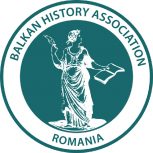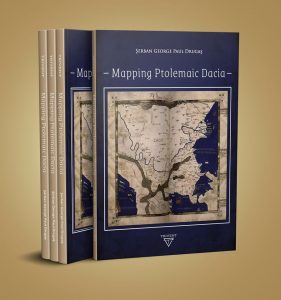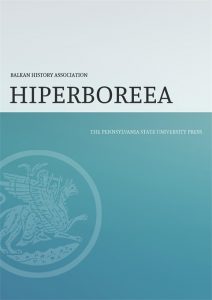
The monograph “Nationalisation of the Sacred: Orthodox Historiography, Memory, and Politics in Montenegro” written by Emil Hilton Saggau, a member of the Balkan History Association offers a detailed analysis of the theological backdrop to these conflicts. It analyses how various strands of Eastern Orthodoxy have adapted to the contemporary political context, a process where history, memory, and politics are transformed to fit the needs of rival nations and churches. It shows an in-depth analysis of this process and the transformations in church-related conflicts in post-communist Montenegro, where the Serbian Orthodox Church has been pitted against a rival Montenegrin church and Montenegrin government. Additionally the book provides an up-to-date and unique analysis of Eastern Orthodox historiography, modern Serbian theology, religion in Montenegro more broadly, and the roots of the violent clash between Orthodox believers and the Montenegrin government in 2019-2021.
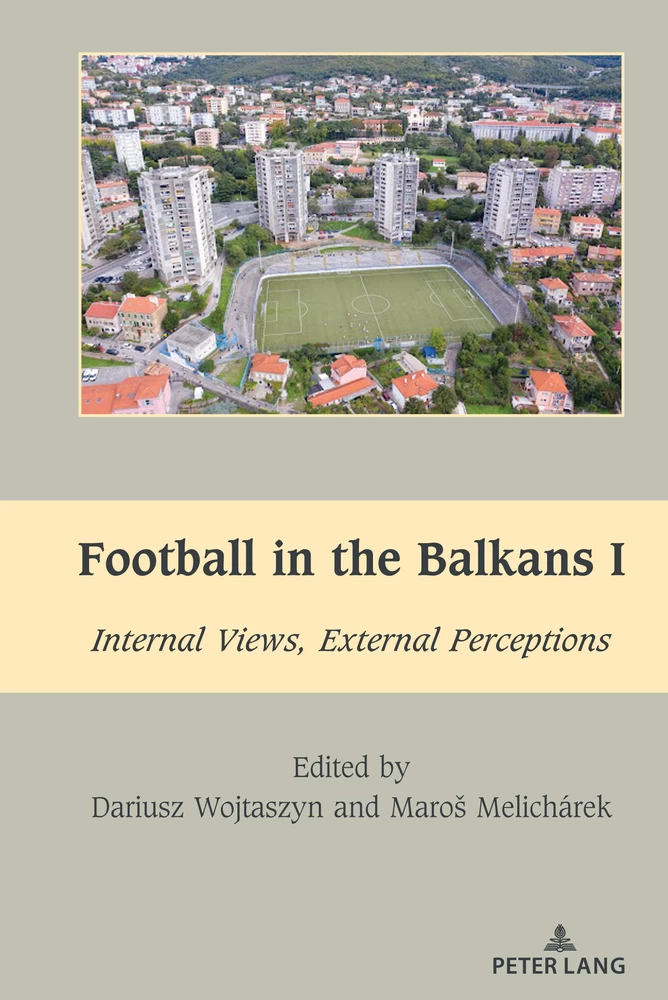
“Football in the Balkans I: Internal Views, External Perceptions” is the 8th volume in the series South-East European History, edited by Mihai Dragnea and published by Peter Lang on behalf of the Balkan History Association (BHA). The volume is devoted to the phenomenon of football in the Balkans and provides an interdisciplinary perspective on the political instrumentalization of football and its social significance in the region. The topics are geographically wide-ranging, covering Greece, Romania, the former Yugoslavia and the states that emerged from its disintegration: Serbia, Croatia, Bosnia and Herzegovina. Across these regions, the contributors cover issues including the legitimacy of power, political manipulation, problems of political transition, corruption, collective identity, nationalism and antagonism between the Balkan nations, and armed conflicts in the former Yugoslavia. Collectively they offer a number of fresh perspectives in conveying a sense of the complexity and diverse historical experiences of football across the Balkans.

“The Balkan Wars: Ottoman Perspectives” is another volume in the series South-East European History, edited by Mihai Dragnea and published by Peter Lang on behalf of the Balkan History Association (BHA). The volume was edited by two BHA members, Ercan Karakoç and Ali Serdar Mete. In this volume, specialists from the Balkans trained in various disciplines have come together under the aegis of the Balkan History Association to address little known and little studied aspects of the wars. They analyzed a huge range of political, historical, medical, sociological and religious aspects of the conflict. The volume, with its groundbreaking content and unique bibliographies, will be an important guide for undergraduate and graduate students studying the political, military, social and artistic history of the Balkan Wars and the Balkan nations.
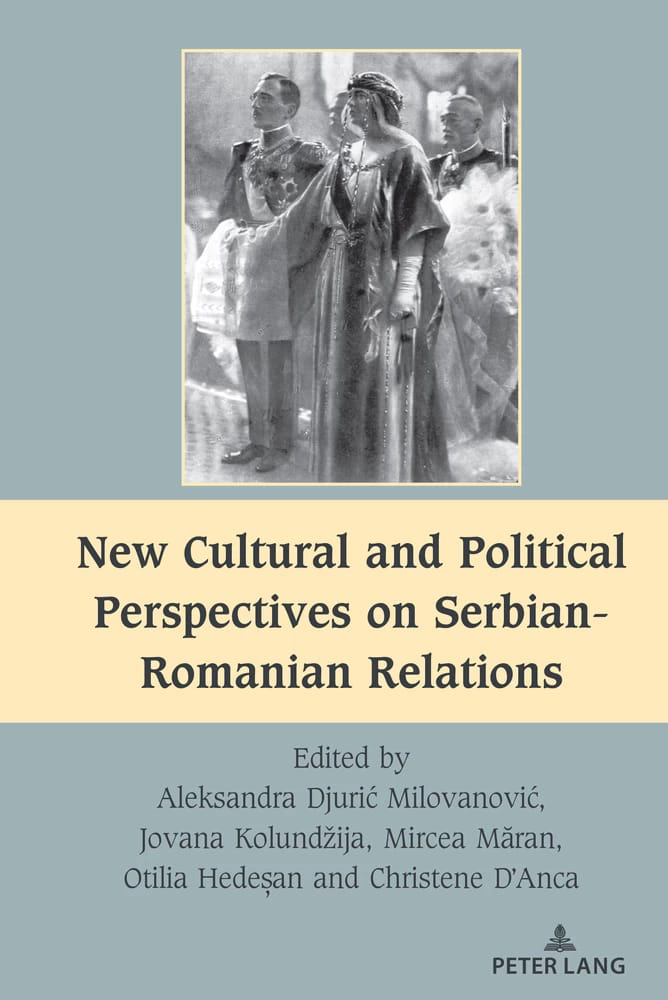
“New Cultural and Political Perspectives on Serbian-Romanian Relations“, eds. Aleksandra Djurić Milovanović, Jovana Kolundžija, Mircea Măran, Otilia Hedeșan, Christene D’Anca is the 5th volume in the series “South-East European History” edited by Mihai Dragnea and published by Peter Lang. Initiated by the Balkan History Association, this unique interdisciplinary volume explores the complex history of cultural, diplomatic and religious relations between Serbia and Romania during the late nineteenth and twentieth century. The authors, scholars with a wide range of academic backgrounds, address these themes in the context of Austro-Hungarian imperialism, the interwar period and the Communist era. The essays in Part I examine diplomatic, political and military relations, while those in Part II explore intellectual and artistic links between the two countries, including religion, literature and the visual arts.

“The Armed Conflict of the Dniester: Three Decades Later” is the third volume in the series South-East European History, edited by Mihai Dragnea and published by Peter Lang on behalf of the Balkan History Association (BHA). The volume was edited by Eugen Străuțiu, Steven D. Roper, William E. Crowther, Dareg Zabarah-Chulak, Victor Juc and Robert E. Hamilton and resulted from the collaboration between the Laboratory for Transnistrian Conflict Analysis (Lucian Blaga University of Sibiu, Romania) and the Balkan History Association. It presents a wide range of voices, and seeks to be non-partisan in its approach. Among the issues it tackles are the political and geopolitical causes of the war; the documentary sources and their analysis; quantitative and qualitative evaluation of the combat forces, their levels of training and professionalism, command structures, tactics, weapons, and equipment; the organization and actions of the paramilitaries; the interests of Russia, Moldova, and other international actors, and their political and military actions; and finally the political and patriotic capital generated by the war.

“Aspects of Islamic Radicalization in the Balkans After the Fall of Communism” is the second volume in the series South-East European History, edited by Mihai Dragnea and published by Peter Lang on behalf of the Balkan History Association (BHA). The volume was edited by Mihai Dragnea, Joseph Fitsanakis, Darko Trifunović, John M. Nomikos, Vasko Stamevski and Adriana Cupcea and explores the channels through which Islamic fundamentalism has spread among Muslims in the Balkans since the early 1990s. The authors collectively examine political and religious ties between Balkan Muslims and various private organizations and state institutions in Muslim states, with a particular focus on the reception of Salafism and its Saudi version, Wahhabism. The volume also addresses the ideological climate that has generated volunteers for Islamic State in recent years. It is the outcome of a research project of the Balkan History Association.
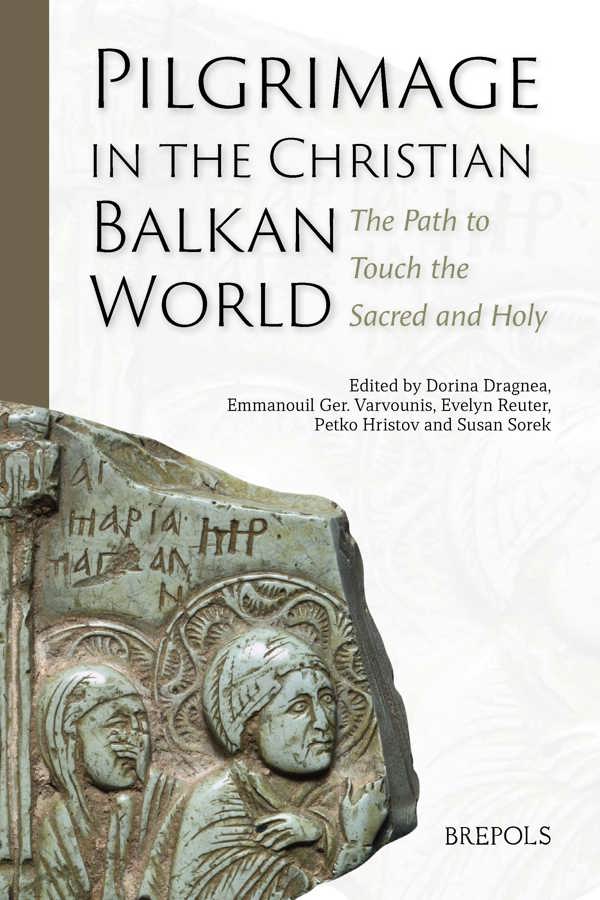
The volume “Pilgrimage in the Christian Balkan World: The Path to Touch the Sacred and Holy“, edited by Dorina Dragnea, Emmanouil Ger. Varvounis, Evelyn Reuter, Petko Hristov, Susan Sorek and published in April by Brepols, explores the context in which the Christian shrines in the Balkans are spaces where the ethnic and denominational patterns in pilgrimage are revealed openly on multiple levels; they delve into how the correlative effects between politics and religion are manifested. In this volume, which is the result of a project initiated by the Balkan History Association and follows an anthropological approach, the authors focus on theoretical analysis, stressing the historical and contemporary behavior performed by the Christian pilgrims, and highlighting the fact that the motivations for going to the sacred places can vary, from seeking and obtaining Divine help to leisure, religious/faith tourism, etc. Three editors (Dorina Dragnea, Evelyn Reuter, Susan Sorek) and three authors (D. Dragnea, E. Reuter, Maria A. Pantea) are members of the association.

“Old and New Insights on the History of Intelligence and Diplomacy in the Balkans” is the first volume in the series South-East European History, edited by Mihai Dragnea and published by Peter Lang on behalf of the Balkan History Association (BHA). The volume was edited by Bogdan Teodor, Jordan Baev, Matthew Crosston, and Mihaela Teodor and is a BHA project. Two editors (B. Teodor and M. Teodor) and three authors (Maja Perić, Tsvetelina Tsvetkova, Milan Sovilj) are members of the association. The volume brings together twelve experts from nine countries, exploring intelligence and diplomatic activities, both historical and contemporary, in the Balkans. It covers a wide range of periods and different historical conditions. The diverse contributions are united by a common theme: the intimate relationship between diplomacy and intelligence.
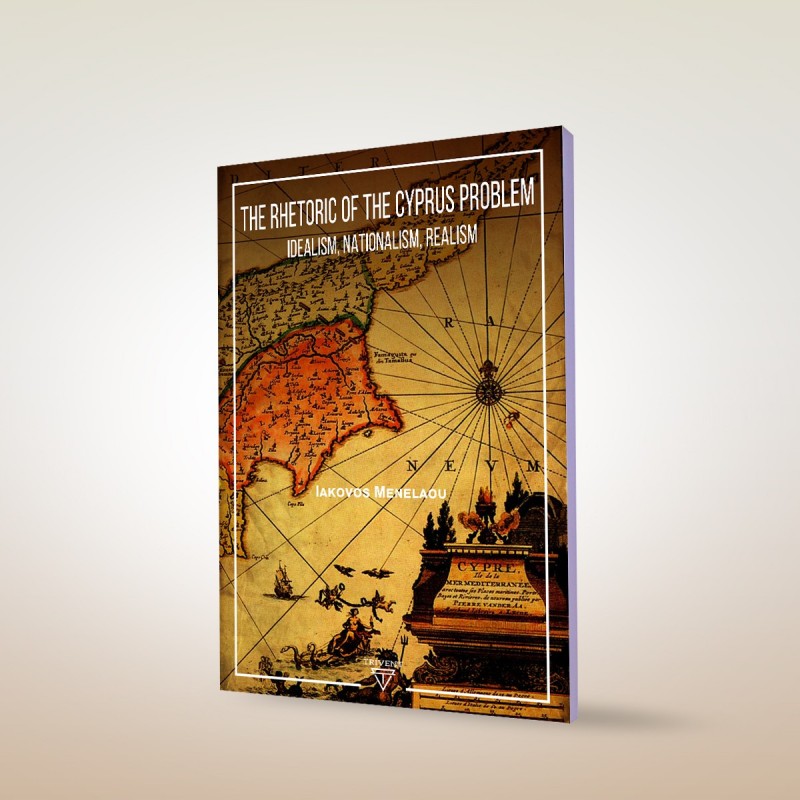
The book “The Rhetoric of the Cyprus Problem: Idealism, Nationalism, Realism“, written by our member, Iakovos Menelaou is not another history of the Cyprus problem. It is an analysis of the forces and policies which led to the traumatic experience of 1974 and the geographical separation of the two largest Cypriot communities (the Greek Cypriots and the Turkish Cypriots). Also, it is an analysis of those forces which keep the island divided. Why is Cyprus a divided island? What led to this division? What forces keep the two communities apart? Why was the Annan Plan rejected? How important is the role of the “motherlands”? Are there any geostrategic interests? Why is Cyprus important in the geopolitics of the Eastern Mediterranean? This book deals with these and other questions, and the analysis is based on declassified documents and other primary material.

“The Religious World of Quintus Aurelius Symmachus” written by our member, Jill Mitchell examines the religious life of one of the last pagan senators of Rome, dates c. 340-402, who lived in a tumultuous time during the Late Antique period of the Roman Empire, dying just a few years before the Western Empire began to break up. Symmachus could not have imagined the political reality developing so soon after his death, so he is important as a late example of the old Roman Western aristocracy, as well as one of the last pagans of Rome. He was regarded as the foremost orator of his time and was a prolific letter-writer who had correspondents in high places and throughout the Empire. He also filled the posts of Urban Prefect of Rome and Consul – and was the opponent of Bishop Ambrose of Milan during the so-called 384 CE “Altar of Victory Dispute,” which was one episode of many leading to the “ triumph” of Christianity over traditional Roman polytheism. Symmachus’ cache of 900 private letters and his official dispatches while Urban Prefect have provided the raw material for this book.
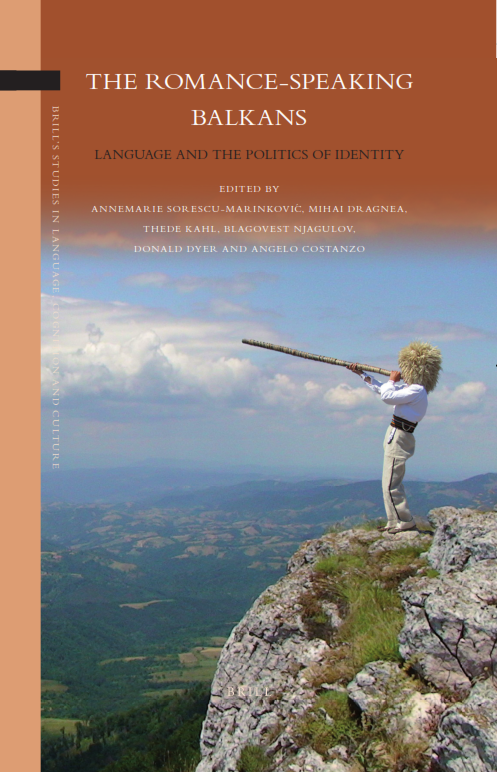
“The Romance-Speaking Balkans: Language and the Politics of Identity”, eds. Annemarie Sorescu-Marinković, Mihai Dragnea, Thede Kahl, Blagovest Njagulov, Donald L. Dyer, and Angelo Costanzo (Leiden: Brill, 2021). This volume is the result of a project started by the Balkan History Association (BHA), and brings together scholars trained in social sciences and humanities to offer the reader a thorough sociolinguistic and anthropological account of this region. It constitutes a contribution to a reformulation of methodological and analytical issues, providing a better insight in the linguistic and geopolitical processes taking place in the Balkan region. The relationship between language and identity is a complex topic everywhere in the world, but maybe it is even more crucial for those people living in the Balkans who speak a Romance variety.
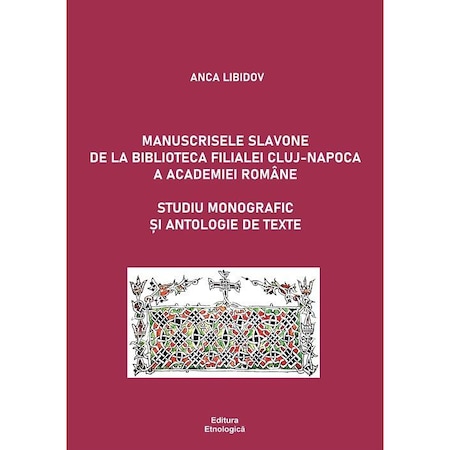
The Slavonic Manuscripts from the Library of the Cluj-Napoca Branch of the Romanian Academy: Monographic Study and Anthology of Texts written by our members, Anca Libidov and published at Etnologică is intended to be an interdisciplinary monograph (in Romanian) that addresses Slavonic manuscripts from the Romanian Academy Library in Cluj-Napoca emphasizing several observations, overcoming the simplistic approach of previous studies undertaken by other researchers. The Slavonic collection within the Library mentioned above, includes a number of 37 manuscripts, mostly religious – canonical and liturgical books – belonging to an era in which Slavonic was present both in royal chancelleries and in Romanian churches and monasteries.
In his book entitled Mapping Ptolemaic Dacia, published by our partner Trivent, our member Şerban George Paul Drugaş conceived a general formula for mapping Dacia based on the information found in the two oldest sources he used. Furthermore, he determined local patterns with the help of the other sources – therefore, defining locations resulted in a better determination of the surrounding relative positions. This information, as well as the correlation of the Ptolemaic locations with archaeological findings, provides an increased recognition of Ptolemaic Dacia, while also contributing to exposing the Ptolemaic universal map.
Hiperboreea (ISSN 2688-8211; E-ISSN 2284-5666) is the official journal of the Balkan History Association. The journal focuses on the study of Southeastern Europe, broadly defined as the states situated in the Balkan region. Without limiting its scope a specific historical period or approach, the journal covers a wide range of topics, such as Cultural History, Political History, Military History, Social History, Economic History and Archaeology, and encourages work on any historical period and interdisciplinary background. From 2020, Hiperboreea is published by the Penn State University Press, and all electronic issues are available on Scholarly Publishing Collective.
